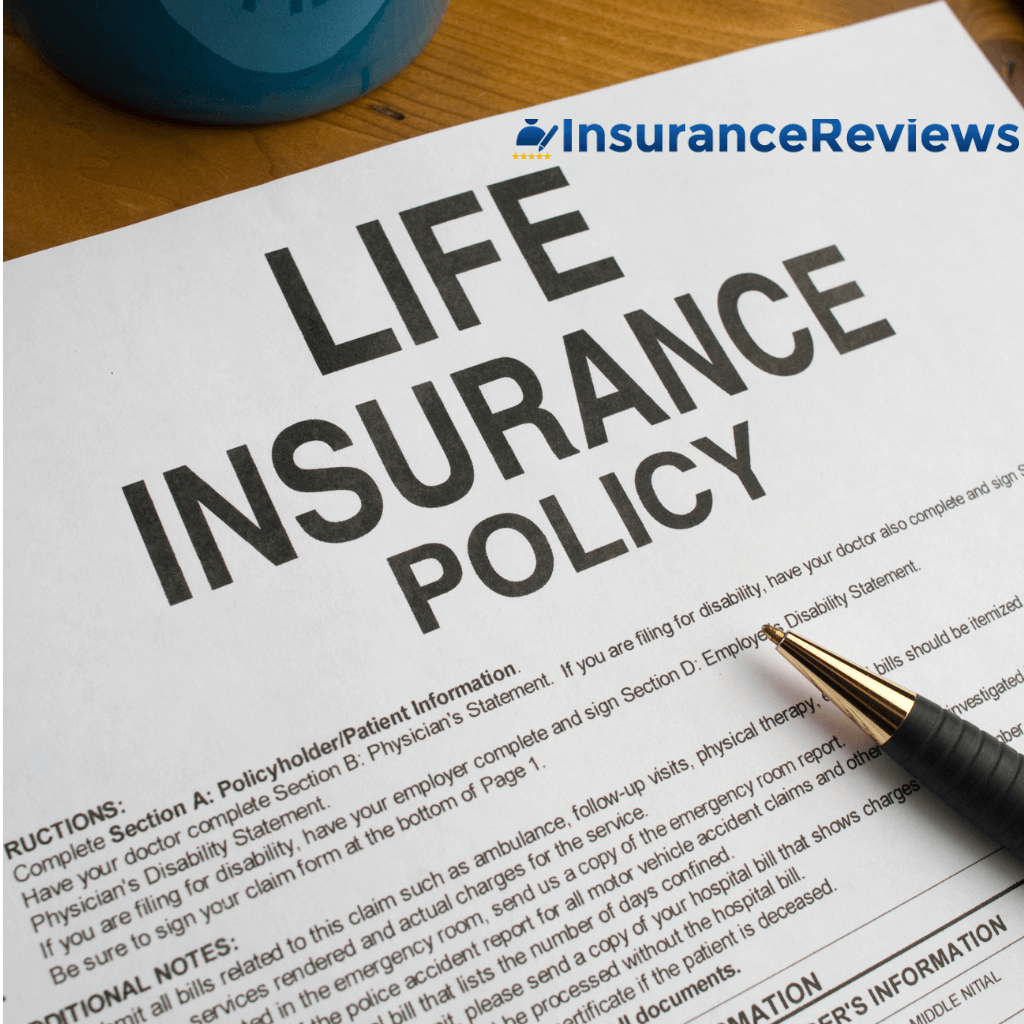Are you overwhelmed with the amount of life insurance options available to you? Trying to make sure your loved ones are taken care of can be stressful and difficult. One option that may fit into your lifestyle is 10-pay life insurance. What is it and how does this type of policy work? Let’s take a closer look at 10-pay life insurance, including what it covers and if it might be a beneficial addition to your financial plan.
Related Articles
- Term vs Whole Life Insurance
- Lirp: Life Insurance Retirement Policy
- Colonial Penn 995 Plan
- What is Life Insurance
What is 10-pay Life Insurance?
10-pay Life Insurance is a type of life insurance policy that allows you to pay for your coverage in a shorter period of time than traditional life insurance policies.
With 10-pay Life Insurance, you only pay premiums for ten years, after which your coverage is guaranteed for life. This type of policy is especially beneficial for individuals who want to make sure that their loved ones are financially secure in the event of their untimely death, but who don’t want to commit to a lifetime of premium payments.
With 10-pay Life Insurance, you can rest assured that you’ll have coverage for as long as you need it, without having to worry about making monthly or annual payments for the rest of your life. It’s important to note that the premiums for 10-pay Life Insurance are typically higher than those for traditional life insurance, but the peace of mind that comes with guaranteed lifetime coverage may be well worth it for some individuals.
How Does 10-pay Life Insurance Work?
10-pay Life Insurance is a type of permanent life insurance policy where you pay premiums for a fixed ten-year period. After the ten-year period, the policy remains in place for the rest of your life without any further payments. This policy is favored by individuals who seek lifelong coverage but are not willing to pay premiums for their entire life. It provides assurance that your loved ones will receive a death benefit upon your passing. The flexible payment option makes it a suitable choice for those who want to protect their family and maintain control over their finances.
What happens after the 10-year premiums are paid?
Your life insurance policy remains active even after the 10-year premium period, but be mindful that subsequent premiums will probably increase as you age. This is because the cost of insurance rises with age. Additionally, some policies may have a cash value that can be utilized or borrowed against. It’s crucial to review your policy documentation to comprehend your coverage’s specifics and future options. Policyholders may decide to maintain their coverage by continuing to pay premiums or convert their policy to permanent life insurance. Regardless of the choice, it’s essential to stay knowledgeable and consult with your insurance agent to address any policy inquiries.
Cash value in a 10-pay life insurance policy
When it comes to life insurance policies, cash value is a term that many people are not familiar with. In a 10-pay life insurance policy, cash value refers to the money that accumulates over time as premiums are paid. While most people assume that life insurance is simply a way to provide financial support to loved ones after passing away, a policy with cash value can actually serve as an additional asset. This means that the policyholder can borrow against the cash value, much like a loan. Furthermore, if the policyholder decides to terminate the policy, they can receive the cash value as a payout. While a 10-pay life insurance policy with cash value may have higher premiums initially, it can provide a useful investment in the long run. It’s important to consider all options when choosing a life insurance policy and to consult with a financial advisor.
Pros of 10-pay Life Insurance
You Know Exactly What You’re Getting
With a 10-pay life insurance policy, you know exactly what you’re getting. There are no surprises and no hidden costs. You know exactly how much coverage you have and how long it will last.
It’s More Affordable
A 10-pay life insurance policy is more affordable than other types of life insurance, such as whole life or universal life. This is because you’re only paying for 10 years of coverage, rather than for the rest of your life.
It’s a Great Way to Save for Retirement
Choosing a 10-pay life insurance policy is a smart strategy for building your retirement savings. Rather than directing your money toward premiums, you can invest it and watch it grow over time. This can provide a valuable source of income in retirement, which you can use to supplement your other income streams or cover expenses.
It’s Flexible
The flexibility of a 10-pay life insurance policy allows you to modify the coverage amount or policy length as your circumstances change. Suppose you have a sick child. In that case, you can increase your coverage to ensure that they are financially supported if something unexpected occurs to you.
You Can Use It as Collateral for a Loan
One of the advantages of a 10-pay life insurance policy is that it can be used as collateral for a loan, should the need arise. This means that you can secure financing without having to liquidate your policy or take out an additional loan, making it a convenient option for those who require funds quickly.
It’s Portable
If you move to a new job or a new city, your 10-pay life insurance policy will move with you. This is because the policy is portable, which means that it can be transferred from one insurance company to another without any tax consequences.
It Builds Cash Value
A 10-pay life insurance policy accrues cash value as time passes, making it a valuable investment option. This cash value can be utilized to cover expenses such as college tuition or retirement costs. Moreover, if you require financing, the cash value can serve as collateral for a loan.
It’s Tax-Advantaged
The death benefit from a 10-pay life insurance policy is tax-free, which means that your beneficiaries will not have to pay taxes on the money they receive from the policy. Additionally, the cash value of the policy grows tax-deferred, which means that you won’t have to pay taxes on the growth until you withdraw the money.
Accessible Cash Value
If you need access to the cash value of your 10-pay life insurance policy before retirement, you can do so through a process called “policy loans.” Policy loans allow you to borrow against the cash value of your policy without having to surrender the policy or incur any tax consequences.
Cons of 10-pay Life Insurance
You May Pay More in the Long Run
Although 10-pay life insurance policies may appear attractive, they can result in higher costs over time due to the insurance company’s tendency to charge elevated premiums for such policies. The underlying reason for this is that the insurer is taking on additional risk by covering you for an extended duration.
You May Not Need the Coverage
Another downside of 10-pay life insurance is that you may not need coverage for the entire 10 years. For example, if you have a young family, you may only need life insurance for 5-10 years until your children are grown and out of the house. At that point, you may no longer need life insurance and would have paid for coverage that you didn’t need.
The Policy May Not Be Renewable
A possible drawback of 10-pay life insurance is that the policy may not be renewable, implying that when the ten years are over, you will lose life insurance coverage unless you buy a new policy. This could be problematic if you experience a health change or develop a condition that makes obtaining fresh life insurance coverage difficult.
You May Have to undergo a Medical Exam
Acquiring a 10-pay life insurance policy might necessitate a medical examination to verify eligibility for coverage, which can be pricey and may not be covered by your medical insurance. Moreover, it can be troublesome because it necessitates a visit to the doctor’s office or laboratory, necessitating time off from your daily routine.
Your Beneficiaries May Not Receive the Money Right Away
If you die during the 10 year period, your beneficiaries will not receive the death benefit right away. Instead, they will have to wait until the end of the policy term before they receive any money. This could be an issue if your beneficiaries need the money right away in order to cover funeral expenses or other debts.
Should I get a 10-pay Life Insurance Policy?
When considering life insurance policies, a 10-pay life insurance policy may seem like an attractive option. This type of policy allows you to pay the premiums for a limited period of 10 years, after which the policy remains in place for the rest of your life. However, before making any decisions, it’s important to evaluate your individual financial situation and long-term goals. Factors such as your age, income, and family’s needs should all be taken into account when choosing a life insurance policy. Additionally, speaking with a trusted financial advisor or insurance agent can provide valuable insight and guidance in making a decision that best fits your unique needs.
Is 10-Pay Life Insurance Better Than the Traditional Whole Life Insurance?
When it comes to choosing between 10-pay life insurance and traditional whole life insurance, there are a few key differences to consider. With 10-pay life insurance, you pay for the policy for only 10 years, after which you are fully covered without any further premium payments. In contrast, traditional whole life insurance requires you to pay premiums throughout the entirety of the policy’s lifespan. This means that while 10-pay life insurance may have a higher upfront cost, in the long run it may be a more affordable option. Additionally, 10-pay life insurance can offer greater flexibility as it allows you to become fully covered in a shorter amount of time. Ultimately, the choice between these two types of insurance depends on your individual needs and financial goals.
10-Pay Whole Life Insurance or Term Life Insurance?
When it comes to choosing between 10-pay Whole Life insurance or Term Life insurance, it really depends on your individual needs and priorities. Term Life insurance provides coverage for a specific period of time, usually 10-30 years, and is generally more affordable than Whole Life insurance. However, Whole Life insurance offers coverage for your entire lifetime and also has a cash value component that can accumulate over time. If you’re looking for a permanent form of coverage and are willing to pay higher premiums, Whole Life insurance may be the better option for you. On the other hand, if you only need coverage for a limited time and want a more affordable option, Term Life insurance may be the way to go. It’s important to review your personal circumstances and financial goals before making a decision.
FAQs
Yes, you can cash out a 10-year life insurance policy. However, it is important to note that the amount you receive may be lower than the full death benefit. Additionally, cashing out the policy could result in losing the coverage and protection it provides. It is best to consider all options and speak with your insurance provider before making any decisions.
Terminating a 10-pay life insurance policy can lead to various repercussions. Firstly, the policy’s coverage you previously held will be forfeited. Secondly, any accrued investment gains under the policy will be lost as well. Canceling your policy after paying premiums for several years will result in the loss of the invested money. It’s crucial to evaluate the advantages and disadvantages of canceling the policy beforehand to ensure that the decision you make is in the best interest of you and your family’s financial stability.
If you don’t pay your premium for a 10-pay life insurance policy, your coverage will lapse. This means that you won’t have any life insurance coverage and your beneficiaries won’t receive any payout in the event of your death. It’s important to keep up with your premium payments to ensure that you and your loved ones are protected financially. Don’t let a missed payment put your family’s future at risk.
If you fail to pay the premium for a 10-pay life insurance policy, your coverage will lapse, leaving you without life insurance and your beneficiaries without a death benefit payout. To safeguard your financial security and protect your loved ones’ future, it is crucial to keep up with your premium payments and avoid missing any.
A cash value is available in many life insurance policies, including 10-pay policies, which can be used as a loan. Borrowing from the policy can reduce the death benefit and trigger tax implications, so understanding the policy terms and conditions is critical before making a decision.
A 10-pay policy is one where the premiums must be paid for 10 years and then the policy remains in force for life. On the other hand, the 20-pay policy requires payments over 20 years, after which the policy remains in force for life. While both policies offer lifetime coverage, the 10-pay option is a bit more expensive due to the shorter payment schedule. Therefore, depending on your budget and long-term financial goals, you can choose either option to provide the necessary financial security for your family.
Conclusion
In conclusion, 10-pay Life Insurance is an interesting type of insurance that could be the right choice for some. It offers a streamlined and more cost-effective way to pay a lump sum life insurance policy premium over a shorter period of time. Understanding how 10-pay Life Insurance works, its pros and cons, and which policy is better for you — Whole Life or Term Life — can make the decision process easier when it comes to protecting your family financially in the future. If you still have unanswered questions regarding 10-pay life insurance or would like to discuss how it might fit into your specific needs, contact us — we’re here to help you find the perfect option!
Insurancereviews.org follows stringent sourcing guidelines by utilizing peer-reviewed studies, academic research institutions, and industry associations to ensure the reliability and accuracy of our content. We refrain from using tertiary references and prioritize primary sources. To learn more about our commitment to delivering up-to-date and accurate information, please refer to our editorial policy.





